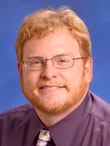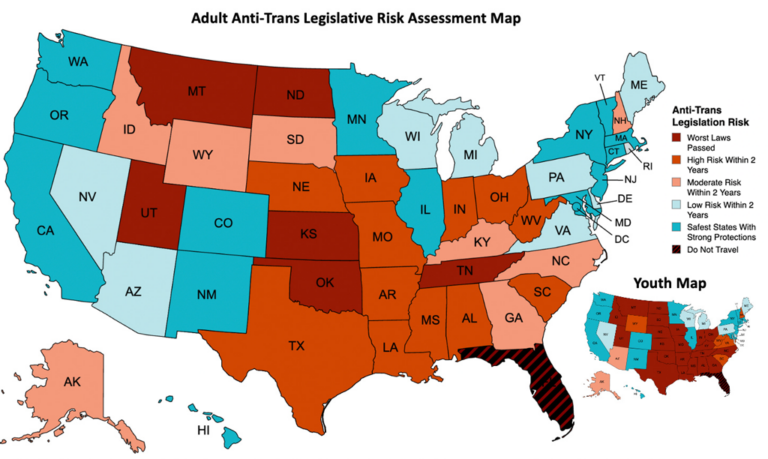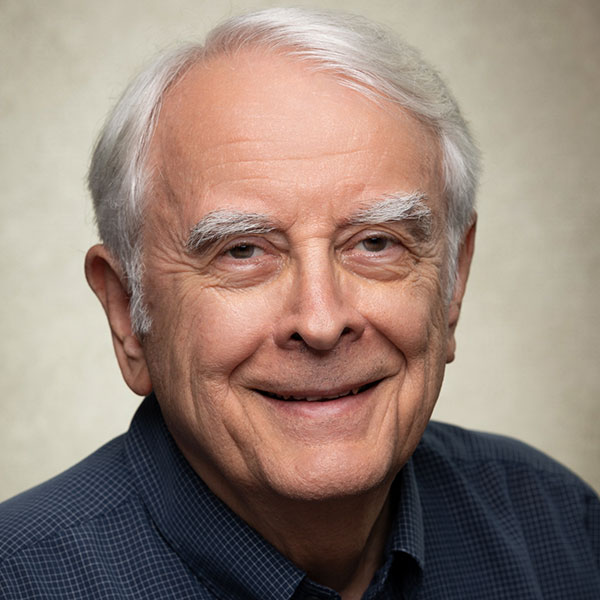Moving at Twitter Speed

The title of my column comes from a recent NPR story on the NAACP. The storied civil rights organization is undergoing a wholesale “retooling” of its structures and tactics in an effort to regain relevance among younger generations of activists and to enhance its efficacy in anti-racism advocacy and education. In adapting to a dramatically changing political and media environment, former NAACP president and CEO Cornell Brooks said: “All of us have to be prepared to respond, not with telegraph speed but with Twitter speed.”
Moving at “Twitter speed” has special meaning to the NAACP, criticized recently by social media-deploying Black Lives Matter movements. Yet, this emphasis on readiness, speed, and communication has applicability to any organization seeking to affect how public groups think about and debate today’s issues. Moving quickly is not about rushing in unprepared, but laying back too much misses important opportunities for civic engagement and public education.
The AAG as of late has been especially mindful of staying current with and taking advantage of a wide array of communication and social media platforms as it promotes the work and interests of geographers and provides virtual places for community interaction and awareness. The purpose of this column is to discuss a few of those exciting ongoing developments at Meridian Place and elsewhere.
My intent in this column is also to encourage geographers to consider the potential benefits of using social media, which includes but is not limited to Twitter. More broadly, moving at Twitter speed is my call for geographers to be nimble, responsive, and strategic public intellectuals not confined to the traditional reach and pace of academic discourse and dissemination. Effective media engagement requires, however, a sober consideration of opportunities, challenges, and strategies. This column ends by conveying the sage advice that a group of AAG members provided me on this issue.
AAG’s Expanding Social Media and Public Outreach Agenda
Many organizations are developing or expanding their social media presence. It is increasingly common to see academic journals appointing social media editors to their ranks, for promotional purposes and in recognition that social media is a fertile area of research in its own right. Academic geography departments have established active profiles on Twitter, LinkedIn, Facebook, and other platforms to assist with student recruitment, program marketing, and maintaining a sense of community among alumni, faculty, students, and staff.
The AAG is no different and over the past few years has enhanced its social media profile and larger public outreach efforts. It has a substantial communication plan for reaching multiple audiences. The Association tailors the scale, frequency, and tone of communications relative to the intended audiences and the media platforms used. Executive Director Doug Richardson continues to make important communication staff hires, including in social media, while also developing a number of new communication channels.
The AAG joined Twitter in 2009, establishing an account (@theAAG) that serves primarily as a news and informational feed for its almost 10,000 followers. Over the past year, Meridian Place staff have hosted Twitter Chat sessions (#AAGChat) on topics such as Careers in Geography, Geography and the New Presidential Administration, the AAG Awards Program, and Geography Awareness Week. These chats, which will continue this year, are valuable opportunities to have a dialogue with the AAG and learn from each other’s questions and comments. If you have not yet participated in one of these Twitter Chats, I encourage you to do so.

The Association has recently added an Instagram account. Instagram is a photo and video sharing service, and its visual nature is a good fit for many geographers who create and analyze maps, images, and other representations. The AAG is currently using Instagram to connect with and feature the work of undergraduate and graduate students. Some of you may have noticed the Instagram call for students to share pictures and videos related to their summer research. The AAG anticipates that the new Instagram channel will engage and capture new generations of geographers, highlight the importance of mentorship and faculty-student collaboration in the discipline, and inspire students to present their research at annual meetings. Students represent 40 percent of our members, and it is important to help them make the most of their AAG membership and wider experience as geographers. In this respect, social media is critical to sustaining the discipline.
Innovations in social media development are also evident in a number of specialty and affinity groups and among some of our AAG regional divisions. In SEDAAG, the editors of Southeastern Geographer, Hilda Kurtz and Deepak Mishra of the University of Georgia, use Twitter (@SEGeographer) to publicize papers as each issue of the journal is published. Hilda and Deepak tweet announcements of articles, tagging the author’s home institution as well as public broadcasting outlets in the author’s home media market and the site of the paper’s case study or empirical focus. It is my hope that our flagship journals, Annals of the AAG and Professional Geographer, can soon participate in a similarly targeted and aggressive use of social media promotion.
Opportunities, Challenges, and Strategies on Twitter
To move quickly and effectively in the area of public outreach is not simply the job of AAG, but an important responsibility for all of us individually and collectively. Engaging social media requires a thoughtfulness that we often do not see among our politicians and celebrities. Some of you might be reluctant, and rightly so, to venture out beyond traditional academic communication without an understanding of what social media may offer, its possible pitfalls, and how best to navigate the new(ish) medium. I asked several Twitter-active AAG members to share their impressions with me. Below is a summary of those impressions, which I have limited to their professional use of social media.
When asked about the benefits of participating in Twitter, our colleagues consistently emphasize how social media allows them to expand their scholarly networks and thus facilitate research and teaching. One can follow and engage established and emerging major thinkers in the field, although not all are social media active. Some of my respondents note that contacts made in the Twittersphere have led to “real world” introductions at conferences and later even collaborations. Social media allows many geographers to hear about new publications, ongoing projects, forthcoming meetings, fluid national and international political crises, and natural disasters (e.g. recent flooding from Hurricane Harvey).
In addition to what Twitter can provide in information and networking, it has proven especially powerful in spurring discussion and debate and gaining access to a wide range of perspectives on issues important to one’s work. The capacity of Twitter to assist people to view a situation or issue from an alternate perspective depends upon the diversity of people and organizations one follows. As one colleague points out, a “confirmation bias” is prevalent among users, meaning that we tend to follow Twitter accounts that conform with our interests and point of view. To assist in understanding an array of perspectives, another colleague suggests that we follow a variety of people and organizations on Twitter, including those with whom we disagree.
There is an important subjectivity at work in Twitter as users fashion and project a public identity as well as critical voice. Advocacy work is increasingly important to geographers from many sub-fields, especially in these disruptive times. Social media is also an important vehicle for greater visibility and recognition of one’s work, leading to inquiries from journalists or catching the attention of non-geographers who we hope will cite and build upon our ideas and research findings. Self-promotion, although open to narcissistic abuse, is not negative if deployed for advancing larger academic and public conversations and ensuring that geography is included rather than excluded from those debates. Some geographers use Twitter to promote the achievements of their colleagues, students, and programs—a nice counterpoint to the zero sum politics found in many universities.

Twitter certainly brings certain professional opportunities, but a strategic approach is required to manage the platform’s challenges. One is limited in how much one can say in a tweet (140 characters), although links to longer comments can be included. The brevity of communication can make it difficult to get the intonation of posted comments right and tweets are open to misinterpretation as with any form of communication. Some of this is unavoidable, such as when another user appropriates or “re-tweets” your comment out of context, but constantly being reflexive and reflective of what one says online should take precedence over knee jerk reactions.
The openness of social media facilitates a culture of outrage and academicians are easy targets for people and organizations not only interested in disagreeing with us but also seeking to damage our reputations. Some employers can be quite sensitive to social media posts. One of my colleagues suggests a “10 minute rule” when one sees something that is disagreeable. If you have to react, then draft an angry tweet, save it, and then come back in 10 minutes. The issue of time is also salient in that Twitter is just one of many of our other duties. Some of the more successful users limit time on Twitter to certain times of the day or only so many minutes a day.
Finally, gaining followers can be a slow and at times disheartening process that requires frequent tweeting, searching for and following others, tagging highly regarded people and organizations in tweets, using hashtags # that are trending, including Twitter handles on presentations and publications, and generating meaningful content and opinion. According to one consulting colleague, “people who share good information and provide thoughtful perspectives do tend to build a following over time.” It is also easier to create compelling content and build a following when you think strategically about what you want to accomplish through social media. Simply joining the Twitter or any social media bandwagon without a goal will probably leave you unsatisfied and the discipline poorly served. Yet, with meaningful direction and a spirit of engagement, investments of time and energy in social media can be a productive and natural extension of one’s traditional academic and professional work as a geographer rather than a distraction from it.
If you, your program, or your workplace currently “move at Twitter speed,” then let me know about your experiences, positive and negative, through email (dalderma [at] utk [dot] edu) or on Twitter using #PresidentAAG.
— Derek Alderman
Professor Geography, University of Tennessee
President, American Association of Geographers
@MLKStreet
Special thanks to Sarah Bednarz, Jordan Brasher, Jason Dittmer, Latoya Eaves, Kelsey Ellis, Sara Koopman, Bill Moseley, Becky Pendergast, Kris Olds, James Tyner for contributing information and perspectives to this column.
DOI: 10.14433/2017.0012


